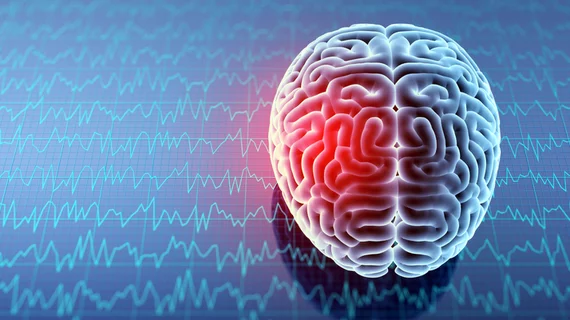Real-world fast brain MRI in outpatient setting offers ‘substantial’ business benefits
The use of fast brain MRI protocols in the outpatient setting may offer “substantial” business benefits to the specialty, experts charged Friday.
Previous investigations have demonstrated accelerated magnetic resonance imaging’s impact in dropping the time it takes to acquire scans while delivering similar quality, but few have explored the potential operational gains. Massachusetts General Hospital recently set out to investigate this topic, sharing its results Friday in Academic Radiology.
“The real-world implementation of fast brain MRI sequences significantly reduced acquisition times for the most performed brain MRI protocols,” Susie Huang, MD, PhD, a Harvard professor and Massachusetts General radiologist, and colleagues wrote Oct. 8. “The projected benefits to the clinical workflow and patient care are substantial, and include increased imaging volume throughput, improved patient access for valuable MRI resources, increased departmental revenue, and improved patient and healthcare worker safety during the COVID-19 pandemic.”
Boston-based Mass General first implemented accelerated brain MRI protocols on three outpatient MRI scanners from January to June of 2020. For the retrospective study, Huang et al. analyzed aggregate acquisition times for more than 1,000 exams during the six months prior to implementation and 1,000 more in the six months that followed. They also calculated and compared expected acquisition times for the five most frequently performed head MRI protocols.
Brain MRI without contrast dropped by nearly 7 minutes, while exams with contrast fell 12 minutes. Scans for multiple sclerosis (14 minutes), memory loss (11) and epilepsy (14) all saw similar reductions. Overall median acquisition times were about 31 minutes before the change, dropping 42% down to 18 minutes afterward. And median acquisition times dropped by between 25% to 52% for the five most common studies, with memory loss imaging seeing the biggest decline.
Shortening MRI scan times would likely produce numerous benefits, including being able to work through pandemic backlogs faster and improving the experience for patients who face difficulties sitting still. This change also improves throughput, leading to more timeslots for exams and additional revenue, Huang and co-authors noted. With a median reduction of 13 minutes, an outpatient provider could potentially add 10 additional slots for a scanner in one day. Assuming an average reimbursement of $500, along with several other assumptions, an institution could gain nearly $1.8 million in additional revenue per scanner annually.
“Future investigations are needed to better evaluate whether the more motion-degradation resistant fast MR sequences are able to reduce callback rates and number of repeat sequences,” the authors wrote.

